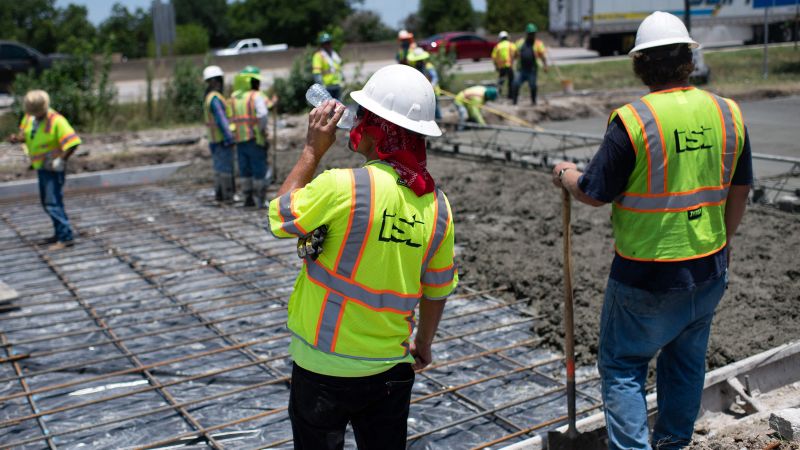
Despite rising temperatures, an inconsistent patchwork of guidelines puts workers in danger
CNN
Esteban Wood still remembers the time a 74-year-old Mexican farmer in Homestead, Florida, collapsed on the job from extreme heat.
Esteban Wood still remembers the time a 74-year-old Mexican farmer in Homestead, Florida, collapsed on the job from extreme heat. In 2018, Wood, the policy director at Florida-based worker advocacy group WeCount!, learned about the case of Jose Delgado, who passed out near the end of a workday without anyone around to help him. It’s unclear how long Delgado was down but he was fortunate to have been found by co-workers, who called emergency services. Delgado, Wood says, continues to suffer from kidney damage. Delgado, who is a long-standing member of WeCount!, helped inspire Wood and others to create the “¡Que Calor!” (“How Hot!”) campaign to have employers grant farmworkers breaks during intense heat through education, outreach and workshops. While cities across the country have passed rules to help workers like Delgado, Wood says there is a big roadblock: state lawmakers. Various states, including highly humid Florida and Texas, have passed laws prohibiting cities and counties from enforcing heat protection rules for workers and businesses, with activists saying the health and safety of thousands of outdoor workers are at stake. Such outdoor workers include lifeguards, transportation employees, ironworkers, agricultural workers and letter carriers. Florida’s House Bill 433 went into effect in July, prohibiting local governments from mandating businesses provide heat protections for outdoor workers such as water breaks and shade. And in 2023, Texas enacted House Bill 2127, a similar piece of legislation restricting local municipalities from adopting any ordinances, orders or rules not already authorized in state law under the agriculture, business and commerce, finance, insurance, labor, local government, natural resources, occupations code and property codes. The reasoning is, “job creators need a baseline of regulatory consistency across the state that allows them to focus their resources on growing their businesses and increasing their economic impact to the betterment of their employees, their communities, and the state, rather than dealing with unnecessary regulatory compliance,” the bill states.





















 Run 3 Space | Play Space Running Game
Run 3 Space | Play Space Running Game Traffic Jam 3D | Online Racing Game
Traffic Jam 3D | Online Racing Game Duck Hunt | Play Old Classic Game
Duck Hunt | Play Old Classic Game




